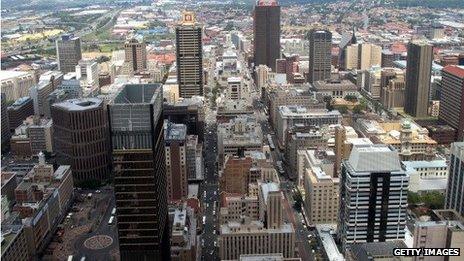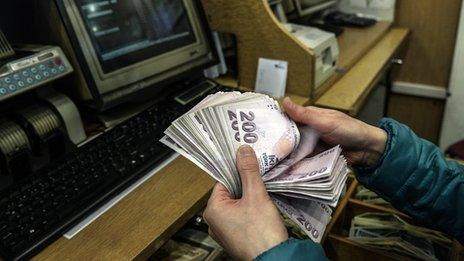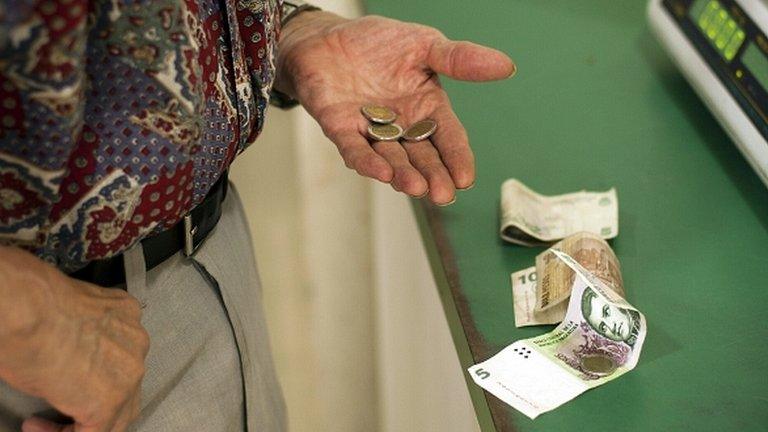South Africa raises interest rates
- Published

South Africa Reserve Bank governor Gill Marcus said that stemming inflation was a priority
South Africa's central bank has raised interest rates, external, a day after a similar move by Turkey.
South Africa's Reserve Bank surprised observers by boosting its main interest rate to 5.5% from 5%.
Bank governor, Gill Marcus said "the depreciation of the rand exchange rate" was the primary cause of the rate rise.
She added that the global financial crisis was in a "new phase" and was "creating new challenges for emerging market economies".
The rand - South Africa's currency - has been under pressure recently, but the bank had still been expected to leave rates on hold.
Ms Marcus explained that since the previous meeting of the Monetary Policy Committee, "the expected cutback in quantitative easing by the US Fed has begun".
"Although the initial response in global financial markets was generally fairly muted, emerging markets have subsequently experienced a high degree of turbulence, particularly in the wake of renewed fears of a slowdown in China."
"While the Fed action signals a recovery in the US, and the UK economic outlook is also improving, it does not mean that the global financial crisis is over."
Rand falls
On Tuesday, the Turkish central bank more than doubled its main policy interest rate, from 4.5% to 10%. The move was intended to head off the plunging value of the country's currency - the lira - which had been falling amid the recent turmoil across emerging markets.
The South African currency has fallen to a five year low against the dollar in recent days - and has lost 25% against the dollar in the last eight months.
Following the Bank's announcement - the rand jumped slightly - but then fell back again against the US dollar. The dollar gained over 2% against the rand, just hours after the Bank's statement.
Analysts said that although South Africa's rate rise was unexpected, it was not "dramatic".
'Pre-emptive strike'
Isaac Matshego, an economist at Nedbank, said: "Our forecast was that for most of this year we were going to see flat rates. But India and Turkey raised their rates this year and Turkey aggressively so."
He added that the currency weakness was the key issue - in addition to inflation.
"The rand has plummeted in line with the Turkish lira and other emerging market currencies and that, it seems, was the key reason for this increase by the Reserve Bank.
Mr Matshego said the increase was likely to be "the beginning of a series of hikes," and was a "pre-emptive strike".

South Africa is the continent's largest economy with a big financial sector
- Published28 January 2014

- Published29 January 2014
- Published19 December 2013

- Published24 January 2014

- Published19 December 2022